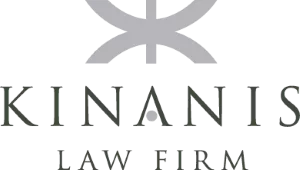- within Criminal Law topic(s)
In an effort to keep up with modernization and the constant changes in the working environment, Cyprus has transposed the provisions of the EU Directive 2019/1152 of the European Parliament and of the Council of 20 June 2019 into its national legislation.
As a result, the Transparent and Predictable Working Conditions Law of 2023 (25(I)/2023) (hereinafter the "Law"), was entered into force on 13/04/2023, repealing the Notification of the Employee by the Employer of the Terms governing the Contract or Relationship of Employment Law of 2000 (10(I)/2000)/
The new Law mirrors the provisions of the Directive, the aim of which is to improve working conditions and to make the same more transparent and predictable. The Law introduces minimum rights for the employees as well as imposed new obligations on the employers in relation to the information to be provided to the employees about their working conditions.
The Law does not apply to employees whose their predetermined total employment period does not exceed three (3) hours per week or less in a reference period of four consecutive weeks.
Provision of Information:
- Obligation to provide information:
Each employer must inform its employees about the essential terms of their employment relationship in writing. The information shall be provided and transmitted on paper or, provided that the information is accessible to the employee, that it can be stored and printed. The employer must keep proof of delivery of the transmission and receipt of the said information.
The obligation of the employer to provide such information is clearly identified within the Law in a rather exhaustive list, which can be summarized as follows:
- The identity of the parties;
- The place of work and the registered office of the business or the home address of the employer;
- The title, position, nature or category of the work of the employee or a description of such work;
- The commencement date of the employment relationship;
- The termination date of the employment relationship or the predicted duration of the same in the event it relates to fixed term employment relationship;
- in the case of temporary agency employees, the identity of the user undertakings, when and as soon as known;
- The duration and conditions of the probation period (if applicable);
- The training entitlement provided by the employer, if any;
- The amount of paid leave to which the employee is entitled or, where this cannot be indicated when the information is given, the procedures for allocating and determining such leave;
- The procedure to be observed by the employer and the employee, including the formal requirements and the notice periods, where their employment relationship is terminated or, where the length of the notice periods cannot be indicated when the information is given, the method for determining such notice periods;
- The remuneration, including the basic salary, any other component elements, if applicable, indicated separately, and the frequency and method of payment of the remuneration to which the employee is entitled;
- if the work pattern is entirely or mostly predictable, the length of the employee's standard working day or week and any arrangements for overtime and its remuneration and, where applicable, any arrangements for shift changes;
- if the work pattern is entirely or mostly unpredictable, the
employer shall inform the employee of:
- the principle that the work schedule is variable, the number of guaranteed paid hours and the remuneration for work performed in addition to those guaranteed hours;
- the reference hours and days within which the employee may be required to work;
- the minimum notice period to which the employee is entitled before the start of a work assignment and, where applicable, the deadline for cancellation referred to in Article 17(3) of the Law;
- any collective agreements governing the employee's conditions of work or in the case of collective agreements concluded outside the business by special joint bodies or institutions, the name of such bodies or institutions within which the agreements were concluded;
- where it is the responsibility of the employer, the identity of the social security institutions receiving the social contributions attached to the employment relationship and any protection relating to social security provided by the employer.
The Law provides for certain timeframes for the provision of the information to the employees. In particular, information listed in (1) to (5), (7), (11) to (13) above, must be provided before the commencement of the employment contract or within a maximum of seven days from the commencement of employment.
Any additional information, specifically relating to items (6), (8), (9), (10), (14) and (15) above, shall be given within one month from the commencement of the employment.
- Probation Periods
In accordance with the recent amendments to the Law, probation periods cannot exceed six months, as opposed to the previous long-lasting principle of Cyprus employment law according to which the probation period could be extended for up to two years (104 weeks). The limitation does not apply to employees being directors of the employer. For fixed term contracts, the duration of the probation period must be proportionate.
- Parallel Employmen
An employer may not prohibit an employee from undertaking work for other employers, outside of the working hours specified in the contract or employment relationship with that employer, or treat the employee adversely due to this:
It is further clarified that the employer is able during recruitment to limit parallel employment by specifying in writing specific objective reasons for said restrictions and given that the nature of the objective reasons is related to issues of safety and health, the protection of business confidentiality, the integrity of the public sector and the avoidance of conflict of interest.
- On demand contracts
The Law now allows for on-demand or similar employment contracts pursuant to which the working hours are not predetermined. Based on such contracts the employer has the flexibility of calling the employee to work as and when needed provided that the employee works on a casual basis as defined in the Law and provided that the total duration of employment with the same employer does not exceed 8 weeks per calendar year with a maximum continuous duration of three weeks or provided that the total duration of his continuous employment does not exceed five hours per week.
- General provisions
The Law now provides that an employee who has worked from an employer for at least six months and his probation period has completed, may request a form of employment with more predictable and secure working conditions, considering that such form of employment is available, and receive a justified written reply from his employer. Also, if an employer is required by law r a collective agreement to provide training necessary for carrying out the work, such training shall be provided free of cost and shall count as working time. Where possible, such training should take place during working hours.
Finally, it is clarified that the rights and obligations provided for under the Law apply to all existing employment relationship with some specific exceptions for which the Law clarifies that the employer will provide the said information only upon the request of the employee who has already been employed on the date of enforcement of the Law.
We urge all employers to review their employment contracts (existing and template contracts) and update them in accordance with the Law so as to ensure compliance. Our firm can be of assistance in the review of such agreements and providing advice.
The content of this article is intended to provide a general guide to the subject matter. Specialist advice should be sought about your specific circumstances.


